Mobile App Analytics – Ultimate Guide

Mobile App Analytics is the guide, assistant, and best-ever companion of a business application. Being a business person, you can’t afford to shoot in the dark. With mobile app analytics, you will come to know how your app users and specifically your potential audience is behaving and responding to your application. And surely tracking user’s behavior will give you an insight into how best your application is flourishing – the usage, new downloads, retention everything.
Source: Giphy
Even during the maintenance, development, or testing phase, it is incredibly important for developers to use mobile app analytics so that they can track the pitfalls in the application from the user’s perspective – eliminating the chance of customer bouncebacks due to lack of app performance.
Mobile App Development is not the task of a day or two, it takes months of constant progress and achievements to get a mobile application to justify your business. Let’s get a sneak-peak into the entire process of mobile app development that will help you have a productive discussion with your mobile app development company. A bonus idea on how long does it take to build a business application and the cost to develop an application will help you have the best out of your conversation with the company.
Why Mobile App Analytics is Important during App Development?
Mobile App Analytics along with development is just the right app development strategy. A professional app development firm will take into account that your app is tested for quality and user experience. Moreover, mobile app analytics is a whole separate process that will guide the entire app development team to the most desired outcome.
While mobile app development, the analytics results you fetch will give you an insight into how users are responding to your application? Which feature is used more? Which feature comes least in use? What is the reason behind not using that particular feature? Etc. Mobile App Analytics is comprehensive in every aspect from a user and market perspective.
When you articulate your milestones you will easily be able to track your progress. Revenue, retention, brand awareness, and other Key Performance Indicators will help you know your milestones achieved and let you strategize and optimize your business app goals on a concrete basis.
Revisit Your Mobile App Goals
It is said that mobile app development is a base for any business’s financial success in 2021 – this is true if you are conscious of your steps. There are 100s of mobile app ideas that you can start in 2021 but that will do good only when you have Mobile App Analytics to support your endeavors.
And before you go with mobile app analytics to measure your goals, you need to be clear with your business goals.
Different applications have different business goals to achieve and thus one needs to have their business goals sorted to launch a robust application. For instance, a game application will focus on in-app purchases while an e-commerce business application will focus more on product purchases. Also, the major goal of various applications is to bring more traffic to the application and later monetize the app for a minimal subscription to give uninterrupted services (especially the OTT platforms).
Your mobile app goals also reflect the study of your competitor’s market and accordingly set the revenue model. Anyways, make a list of mobile app goals that you want to achieve through your business app development.
When you have your business goals set, mobile app analytics will help you assess your goals, make changes in your strategies and optimize the future processes based on real-time outcomes.
So it is basically what you want to achieve from your business application (goals) and a proper roadmap to achieve your goals (mobile app analytics).
How can you track your Mobile App Analytics?
Now that we know how important it is to track the performance of your business application from a user’s perspective. It is time to know how you can track your mobile app analytics. There are mobile app analytics tools to fulfill your purpose.
An experienced Android or iOS App Development Company is consequently working on the mobile app analytics tools so that the app doesn’t suffer in the near future. Mentioned below is the list of Mobile App Analytics tools that cater to the best and most concrete Mobile App Analytics.
| Firebase by Google | iOS App Analytics | Countly |
| Localytics | Flurry Analytics | Indicative |
| App Annie | Mixpanel | devtodev |
| Smartlook |
Must-Have Features of Mobile App Analytics Tools
From the above segments, we have come to know that Mobile App Analytics gives us the most needed information about the app and its usage behavior, therefore we can’t afford to overlook certain features of the app analytics tools. Mentioned below are the must-have features of mobile app analytics tools:
1. Filters
The best mobile app analytics tools show you the data that you are most concerned with. You can easily filter the data that you want to see and work on.. Like:
-> Platform – The platform that your target audience is using the most – Android, iOS or any other OS Version.
-> Date – The choice to select the date from where you want to see the data. Yesterday, this week, last week, last 15 days, etc. Even the option to choose the custom date range.
-> Audience Name – Creating a group of app users that share similar traits or have a similar app usage preference. For instance, new users, old users, paid subscribers, dormant users, etc.
-> User-Property – The option to further filter the huge user base based on their other traits like age, gender, marital status, app version, device model, ads frequency, etc. Customer segmentation is a must for relevant marketing and increasing engagement to your business application.
Proficient mobile app analytics tools support downloading a CSV version of the data that you have filtered.
2. Conversions
The ultimate goal of your business application is conversion, no matter which type of application you are holding or what business you are serving. The next big thing is brand awareness and getting new installs.
3. Active Users
With mobile app analytics, your biggest aim is tracking user activity. A proficient mobile app analytics tool will let you see and filter the daily, weekly and monthly active users that have plotted over time. With this, you will come to know the recurring clicks and get the active user list.
Also, the segment includes access to the real-time active user data within the last 30 minutes as well as conversion events during that period (like users opening the account, completing the tutorial, etc).
4. Revenue
This feature of the mobile app analytics tools is a true asset for any online business as it gives the results of total revenue your app is getting, average revenue per user (ARPU) and the average revenue per paid user (ARPPU) for the time period you have selected.
5. Version Adoption and Acquisition
Mobile app analytics tools give you the privilege to track the app version adoption graph for each version through which you can come up with the percentage of the active users (as those who updated the app are using it on a frequent basis). Also, you can see the top acquisition channels along with the number of times the app was opened on a particular channel.
6. Engagement
The section has a complete analysis of user engagement showing the active daily engagement with the graph displaying the trends for the time period that is selected by you.
7. Retention and Audience
The retention group gives you the analysis of the user group that started using your application at the same time. Again distinguished with days like same day or same week. If you want to fetch additional information about your audience, this feature of the mobile app analytics tool gives you a quick idea of user characteristics based on geographic location, devices, and demographics.
Mobile App Events
Mobile app analytics tool serves a lot of purposes for an online business if integrated into your business application it will automatically capture events and user properties for you. Events are some important steps that are going on in your business mobile application and that you need to measure to articulate the progress and efficiency of your app.
Here are some terms other than Events that you need to stress on.
-> Parameters – Supply information that contextualizes events.
-> UserProperty – As the name has it, UserProperty is the attribute of mobile app analytics tools that analyzes and gives concrete results based on user behaviors.
Events and user property help you know how your target audience is responding to and using the application.
Events that can help you get concrete results on the user experience and efficiency of your application:
Automatically Fetched Events
Source: Giphy
Automatically collected events show you the analysis of the basic user interactions with your application. The proficient mobile app analytics tool has the capability to collect such events, as far as you are using the best Mobile App Analytics tool you do not have to write additional codes to collect these events. Get informed about the list of events that are automatically collected by the tool from its documentation.
Predefined Events
The list of generic events that are collected by other app analytics tools as well. Pre-defined events are the commonly used events by every mobile app analytics tool to measure the results of app usage. Such events are further segregated into categories:
-> Automatically Collected Events – As said above, it is the list of the basic user activities that are done by the app users like installing the app, first-time access to the app, views or clicks on the ads, in-app purchases, etc.
-> All Apps – Collecting and analyzing user activities based on their inputs like signing up processes, login process, entering the keywords for search, etc. This is the pre-defined events list for streaming applications, social media applications, messengers, news forums, etc.
-> E-Commerce App Events – The list of events like entering the billing information, wishlists an item or add an item to the cart, when the checkout is done, etc.
E-Commerce app development is the sure-shot way to financial success in 2021. An e-commerce site facilitating shelf shopping to payments and home delivery, integrated with an app analytics tool, this utility is a boon in 2021. Giving your passion a direction, here are 104 Sure-Shot E-Commerce Business ideas that are sustainable and have a growth opportunity in 2021 and beyond.
-> Aggregating App Events – Aggregating sites are referred by all. Whether it’s online job aggregators, hotel aggregators, real-estate aggregators, or so on. For such aggregating sites, the list of the predefined events is when the user searches for a specific field, filters and shortlists an item, issues a refund, etc.
This 2021, come up with any – taxi booking app, real-estate application, e-learning application or healthcare application and establish your success with the help of mobile app analytics tools.
-> Travel and Hotel Booking – The predefined events list resembles an e-commerce site, with additional parameters including flight number, no. of rooms, no. of passengers, etc.
Custom Events
Apart from the automatically collected events list and the predefined list, an efficient mobile app analytics tool has the ability to create a custom events list in order to get business-specific information to establish a stronger base. The custom events list helps you and the mobile app development company that is working on your project to measure the precise user-based information that is unique to your application.
Please Note: Custom Events list might include some naming rules having confidential information, make sure to go through the documentation of the analytics SDK that you are occupying for your business application.
Custom Event Parameters
Parameters of the custom events help in gaining the context of the information collected by the mobile app analytics tools. Just like custom events, custom event parameters also have some naming rules.
User-properties
User-properties is yet another noteworthy field of mobile app analytics tools. Based on the information you can collect data depicting user behavior and further use the information to create user segments. This allows you to launch specific features, functionalities and advertisements triggering a certain user group – to get sales from the group.
Mobile app analytics tools have the ability to automatically collect some basic user properties like gender, age, country, location, OS version, app version etc. For you to get the best out of your mobile app analytics, there are options for you to define your own user properties for instance segregating active and dormant users based on the number of sessions they had, etc.
User properties are the best asset when it comes to online and offline marketing of your brand as you can shoot the most relevant ads and messages to the segmented group to increase your chances of conversions. For instance, you can tell the most active users to get in-app purchases, send push notifications to dormant users, or provide help to the users to clear a certain level in the game.
Segmentation based on user properties will help you connect with your target clients triggering their shopping behaviors and preferences.
User-Sessions
Analytical information based on the duration for which the user uses the application, user-session is your asset when it comes to assessing the time period for which your app is used. Especially for streaming, gaming, or social media applications, user-session is important to judge the level of involvement from the user’s end. For instance, how much time in a day a user spends on the application? How many sessions does it take for the user to get a subscription or make in-app purchases, etc?
One of the most intriguing traits being that, before registering any information, the mobile app analytics toolsets a default period of 10 seconds before starting a record session. This is to eliminate the users who mistakenly clicked the application and closed it immediately. Having the best mobile app developers and the best mobile app analytics tools behind your project will help you get the ROI for your investment in the mobile app.
The Ultimate Goals of Mobile App Analytics
1. Fetching Analytics and Goals
Every business application has whole different goals to achieve because of which the mobile app analytics has to be precise and exclusive. The mobile app analytics tools help you set precise goals for your application. Based on event analysis, you can have a bunch of pre-set goals whether it’s revenue, awareness, downloads or other such goals, you can come with your own milestones and work on them through your mobile application or mobile app marketing.
Even if it is mentioned in the last segment of the article, setting the goals is the primary requirement for any business application that is launched with the aim to sustain and grow. Based on your goals you can easily scrutinize the data for more precise results and decision making.
With pre-set analytics goals, you can make the best use of the user information fetched and track every milestone you have achieved towards your end goal. Also, based on the user properties and events you can come up with the most relevant promotional strategies to achieve your end targets and optimize the conversion and sales funnel.
2. Tracking Events to Assess the goals
Source: thebalancesmb
Apart from tracking user time, user properties, dates, and a number of users, one needs to track the statistics based on the collected events, pre-defined as well as the custom events for absolute decision making.
The mobile app analytics tools will help you assess each event separately, fetching a lot of information that will be useful in its own personal way. Events include event location (events triggering top countries), event demographics (events triggering gender, and age), etc.
-> Conversion events
The term itself depicts its worth, the conversion events are the most crucial events that are to be tracked to find the most valuable user database that is the essence of your online business. It is indeed necessary to study these events, users, and the acquisition channel they came from. This way you will be able to dedicate your efforts to the most performing sales and marketing channels while trying to revive sales from in-active channels.
For instance, if your ultimate goal is revenue from the app then your conversion event will be the number of clicks to your application from external ads or the number of in-app purchases. If the goal is registrations, then your conversion event will be a new user that is registering to the app.
-> Automatic Conversion Events
Just like automatically collected events, the automatic conversion events are the events that are recorded by the mobile app analytics tool by default. Such fields include:
->> App launch – The very first time a user uses the app post-installation or re-installation.
->> In-App Purchases – The information about the in-app product that a user purchases. The segment includes all the payments that are processed by the App Store or by Google Play – the product name, currency and quantity are recorded and passed as parameters of analysis.
->> E-Commerce Purchases – What concludes as the conversion event for retail e-commerce applications is coupon, currency, value tax, shipping, and transaction id. Such as e-commerce apps to promote dropshipping business.
On the contrary, quantity, coupon currency, number of rooms, start date, end dates, number of day and night stays, etc are the parameters of conversion events for hotel aggregating sites.
Even if you want to own a grocery or any other MVP e-commerce store, you must know the analytics and what they indicate about the performance of your business application. In terms of app analytics, DIY or hiring freelancers can be high-risk, hire android app developers or iOS app developers with a vision to achieve your aim.
-> Custom Conversion Events
How can you say that a certain user base is valuable to your business? There is a different set of valuable users for different business applications and therefore it is impossible to create a custom base to judge the users. Custom conversion events in every efficient mobile app analytics tool help you set your own conversion base so that the data you fetch is oriented to your business goals.
-> Conversion Events Tracking
When fetching the information is not enough to make the decisions, timely tracking the conversion events will dive you into more details of how your application is performing in the context of revenues, registrations, or sales.
With conversion events tracking, you can easily dive into the details of the specific conversion events – the mobile app analytics tools that are integrated into your business application will show you the timeline of the conversion event count as well as the top acquisition channels (all external medium and campaigns) that have contributed to the most of your app sales. Again the aim is to know from where your most valuable consumers are arriving. Every professional digital marketing firm is adamant to collect the data of top acquisition channels from where most of the sales arrive.
3. Audiences
An audience group is the set of users who share a particular purchase behavior, events, user properties, or all. You can fetch the information about a particular set of audiences and work accordingly to make your application more personalized or centric. The pre-defined audience list that is by default given by the mobile app analytics tool is “All Users” (everyone who has used the application) and the Purchasers (ones who have made a purchase in your application). Above everything, you have the choice to create a customized list of audiences that is again centric to your business goals.
Every entrepreneur along with the associated mobile app development company is concerned with conversions and customer retention. Knowing and defining your audience base will give you more information on a particular group of users – including the number of users, their daily activities on the app, the ARPU, app versions they use, their age, gender, country, and interests.
Since conversion events show you your most valuable users, it is advisable to create an audience based on that conversion group – this will help you create a group of the most valuable audiences, analyze their traits and accordingly plan offline-online marketing.
4. Cohort
The cohort is the group of users who have installed or started to use the app around the same time. This is another worthwhile group that can help you assess the progress of your business application. This group will help you know the retention rate of your business application and how many are currently using the application over different periods of time.
5. Funnel
A hypothetical conversion funnel helps you assess the steps that users are going through to reach the final conversion. For instance, an e-commerce site has displayed its ad on the third-party site – (i) the user will see the ad, (ii) install the application, (iii) add the items to the cart and then (iv) make the final payment (converted) (v) coming back to shop for more.
This will help you assess the different conversion rates and work on the pitfalls that are obstructing the final conversion. You can filter various audience groups based on the user properties or events and see how each group goes through the funnel in different patterns and rates. This will help you work on the potential areas of your mobile application.
An app analytics SDK is a boon for any budding business in 2021, whether it’s during or post-app development, mobile app analytics will help you know your business deeply and achieve all your business goals.
Takeaway
Mobile app analytics fetched using potential app analytics tools/SDKs will help you reach your goals faster than any other traditional marketing process. Vervelogic, standalone mobile app development and digital marketing company is here to get to the roots of your business requirements and assess mobile app analytics to further reach your business goals. Contact us for more queries on app development and mobile app analytics.

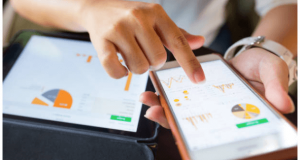





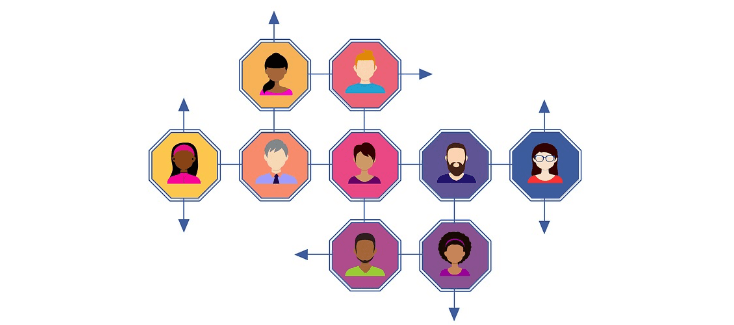
:max_bytes(150000):strip_icc()/goalscape-56a831835f9b58b7d0f1709f.gif)
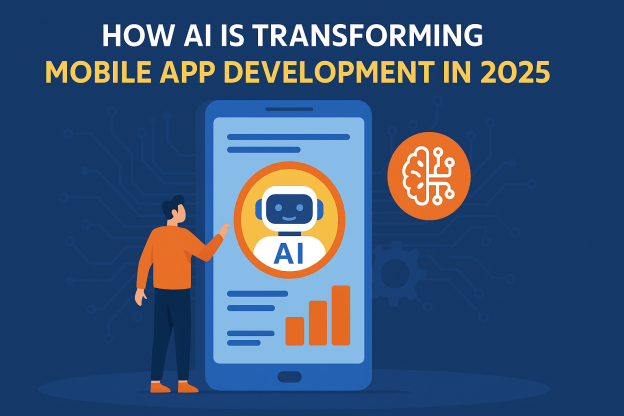

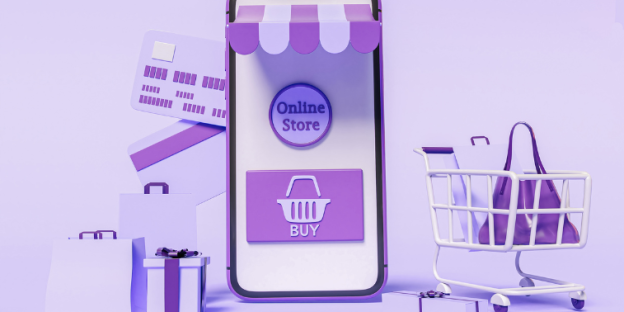
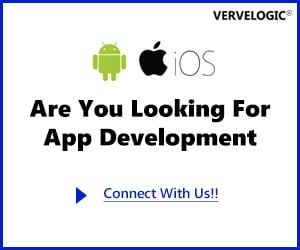

Thanks for sharing this informative post!! And I am clear with “mobile app analytics”
Awesome job!!
Amazing representation of the blog. Very comprehensive and informative.
Being related to the IT field, I feel like your posts hold top-notch quality, information and orientation. Another hit by the writer.